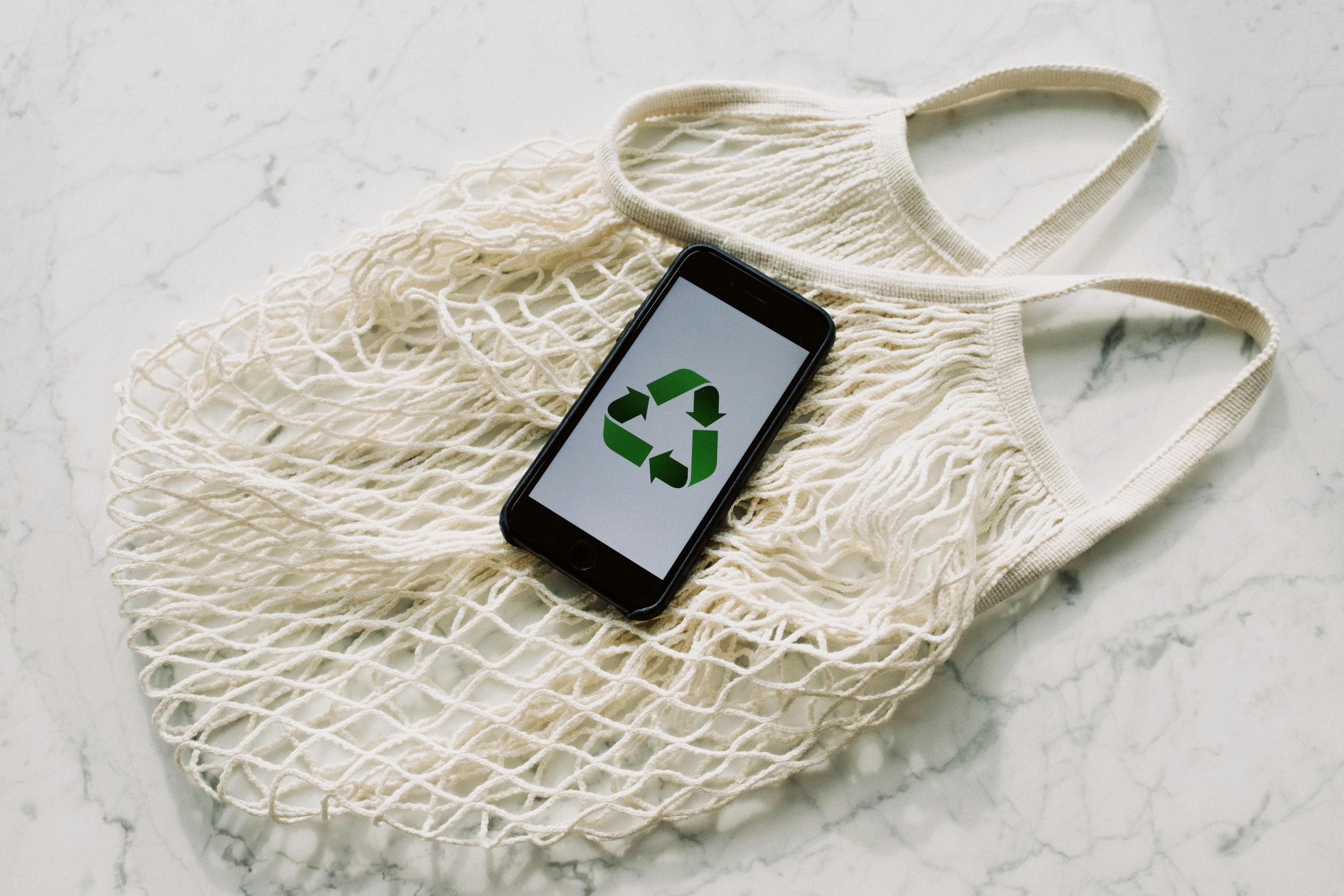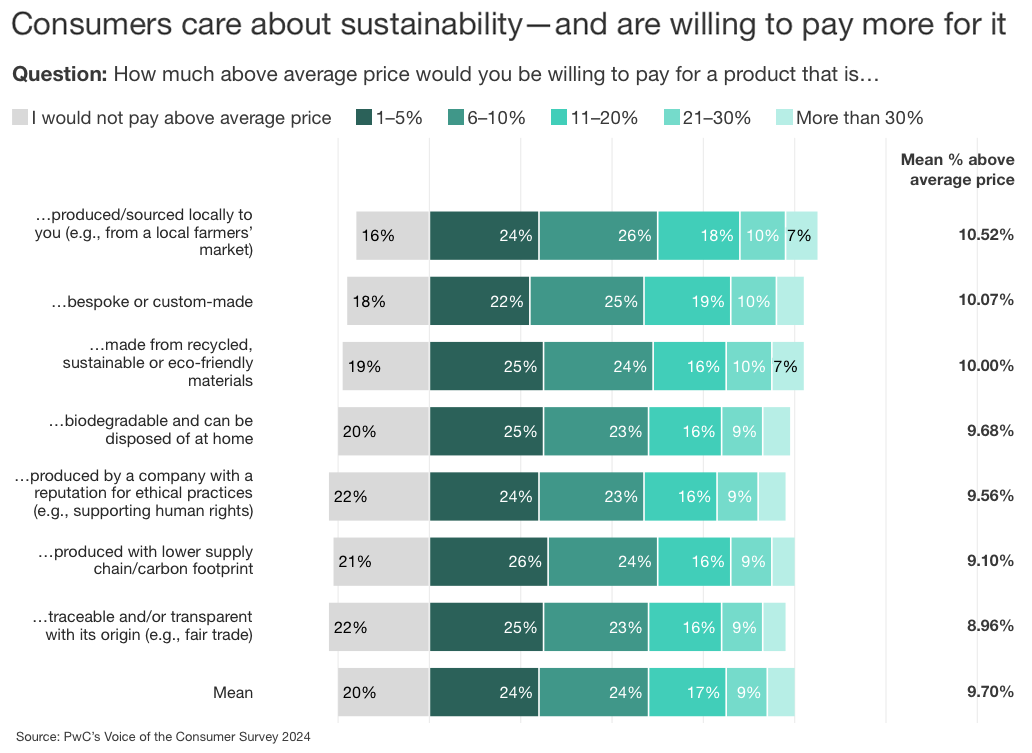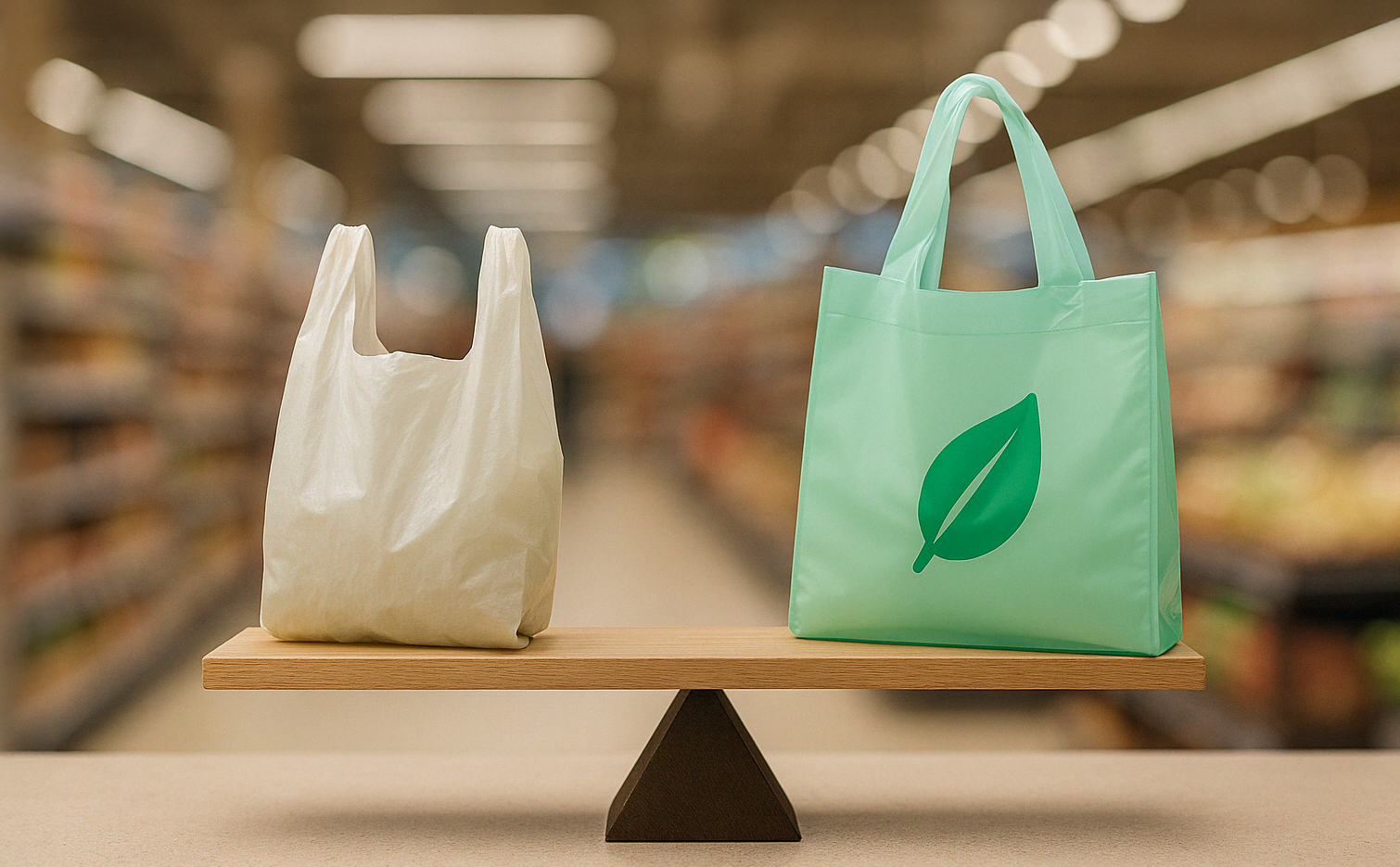25 / Jan

Sustainability has become an important consideration for consumers in Australia, New Zealand, and the United Kingdom when evaluating brands. Shoppers are actively seeking eco-friendly products and services, pushing businesses to focus on ethical practices and environmental responsibility. This increasing demand is prompting various industries to respond, helping to drive wider awareness and progress for sustainability initiatives.
Trend Increase in the UK
As consumer priorities shift in the United Kingdom, sustainability has become a significant concern for both individuals and businesses. According to YouGov data, 60% of Britons consider that climate change is the biggest threat to civilisation, with 21% willing to pay more for sustainable products. This sentiment is strongest amongst Gen Z and Millennials and reflects a broader movement where consumers are considering not just quality and price, but also the environmental impact of the products they buy. However 28% of Britons say they are currently unconcerned with sustainability initiatives, so there is still potential to sway consumers that are on the fence. [1]
Trend Increase in Australia
Australians are increasingly adopting sustainable practices in their daily lives, actively making choices that promote environmental well-being. Recent data from Insights Exchange reveals that a 58% of Australians are cutting back on single-use plastics by reusing bags, bottles, and containers, while 56% are saving energy and water by opting for more efficient appliances. As consumers face rising prices for new products, 31% are turning to second-hand purchases, part of a wider trend towards a circular economy (reduce, reuse, recycle), where consumers are more aware of the lifecyle of products that enter the consumer market. [2]
Trend Increase in New Zealand
New Zealanders consumers have long been ‘eco-leaders’ among other Commonwealth nations. A significant ratio of the country is dedicated to natural reserves and protected areas, while the international marketing slogan 100% Pure NZ was launched back in 1999 and is still in use today.
According to Consumer NZ, one in ten Kiwis have modified their spending habits for environmental reasons, opting for more sustainable products and brands. 75% of consumers place significant importance on verifying the green claims of products before making a purchase, reflecting a growing commitment to sustainability in practice. [3]

Eco Awareness
As awareness about extreme weather events and climate change continue to rise, consumer behavior is shifting in response making sustainability a more important factor in purchasing decisions. According to data from PwC, 85% of global consumers are personally witnessing the impacts of climate change in their daily lives and 46% changing there purchasing habits, to reduce their personal impact. Many are happy to pay more for products that have sustainable qualities. [4]

Consumers are not only seeking eco-friendly alternatives, but they are also holding businesses accountable for their environmental footprints, and the is most often seen in the active comments sections on social media. Brands have to respond quickly to consumer sentiment and provide ample information for earnest consumers to find the information they need. This shift is pushing more companies to take action, to integrate sustainability into their products and practices. [5]

Balancing Act
Businesses are often stuck between government policy changes and the convenient shopping habits of their consumers. An example of this was the banning of single use plastic bags, embraced by many regular grocery shoppers as, but equally dispised as inconvenient by others.
All Australian states had plastic bags banned in February 2023 [6], for New Zealand it was July 2023 [7], and the UK implemented the ban in October 2023. [8] While these bans were a significant step toward reducing plastic waste, they sparked frustration among some consumers who viewed the changes as inconvenient.
However the switch allowed supermarkets to charge a premium for reusable higher quality bags, often selling for more than $1, a fee that consumers previously would have balked at. Cheaper paper bags have become more common in the last couple of years, but these are weaker than the original single use plastic bags, and will fail quickly when wet due to condensation from chilled or frozen goods.
This reflects the challenging balance of introducing new sustainability intiviates, and testing public feedback as consumers adapt to the new approach. Brands that rush to implement a new change without listening to their core customers first can risk doing short term harm to their brand, even if the goal was to have a long term impact.
For marketers and PR professionals, the challenge isn’t just about driving sustainability initiatves with other stakeholders but communicating progress clearly. Sharing even small steps a brand is taking toward more eco-friendly practices can build trust and spark engagement. Whether it’s through social media or clear messaging on product pages, the goal is to make sustainability easier to see.
Showing real actions, even if small, helps build a narrative around a sustainability journey that consumers can connect with and support.
Make sure to check out the other Top Consumer Trends in 2025 for Australia, New Zealand and the United Kingdom.
[1] British Attitudes Towards Sustainability on World Environment day 2024, YouGov, May 2024
https://business.yougov.com/content/49572-british-attitudes-towards-sustainability-on-world-environment-day-2024
[2] The Latest Australian Consumer Trends to Watch, Insights Exchange, April 2024
https://insights-exchange.com/wp-content/uploads/2024/04/White-Paper-Report-Trendspotting-2024-Insights-Exchange.pptx_compressed.pdf
[3] Environmentally Conscious Shoppers at Risk of being Greenwashed, Consumer NZ, April 2024
https://www.consumer.org.nz/articles/environmentally-conscious-shoppers-at-risk-of-being-greenwashed
[4] PwC 2024 Voice of the Consumer Survey, PwC, May 2024
https://www.pwc.com/gx/en/news-room/press-releases/2024/pwc-2024-voice-of-consumer-survey.html
[5] The Rise of Sustainable Shopping: Trends Reshaping Consumer Goods and Retail, Reso Insights, November 2024
https://www.resoinsights.com/insight/the-rise-of-sustainable-shopping-trends-reshaping-consumer-goods-and-retail
[6] The State (and territories) of Plastic Bans, Clean Up, 2023
https://www.cleanup.org.au/plastic-bans
[7] Phasing out hard to recycle and single use plastics, The Ministry of Environment NZ, December 2024
https://environment.govt.nz/what-government-is-doing/areas-of-work/waste/plastic-phase-out/
[8] Single-use plastic bans, BioPak UK, 2024
https://www.biopak.com/uk/single-use-plastic-bans?srsltid=AfmBOooAVxWfC5a7yyUBIQDonphrOO6m9LzSInnHYH9nl720y-IuitaC




Comments (0)